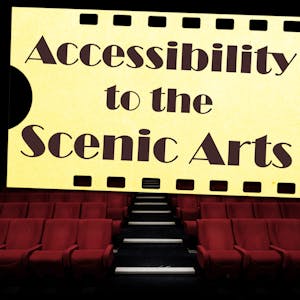Join the Accessibility to the Scenic Arts course to gain in-depth knowledge on creating inclusive cultural experiences. This course covers a wide range of topics, from web accessibility and transportation to inclusive services such as audio description, sign language interpreting, and relaxed performances. Learn about legislation, venue accessibility, and effective communication and dissemination strategies to ensure equal access to culture for all individuals.
Certificate Available ✔
Get Started / More Info
The course modules cover a wide range of topics, including legislation, venue accessibility, communication strategies, and management skills, providing comprehensive training on creating inclusive cultural experiences.
This module provides an introduction to the comprehensive concept of accessibility, including netiquette, blogs and forums, and solving technical issues. Gain insights into time management, quizzes, and certification.
Gain knowledge about legislation and international conventions related to disability and inclusion. Understand target audiences, access services, and the United Nations Convention on the Rights of Persons with Disabilities.
Learn about venue accessibility, including indoor and outdoor accessibility, wayfinding, signs, and maps. Understand how to assess and improve venue accessibility.
Explore various access services concepts, such as large letters, braille, audio description, surtitling, sign language interpreting, and relaxed performances.
Understand how to implement access facilities at arts events to ensure inclusion for all, including braille, audio description, surtitles, sign language interpreting, and relaxed performances. Engage in non-graded peer assignments.
Gain insights into communication and dissemination strategies for accessibility management, including stakeholder engagement, accessibility policies, and website accessibility.
Acquire skills in organization, feedback analysis, and managing heterogeneous teams. Understand the checklist for production, external arrangements, internal arrangements, and communication.
Complete the final assignment and debriefing, applying the knowledge gained throughout the course.
Explore the evolution of the piano sonata, from its origins to modern-day compositions, in this comprehensive 3-course specialization offered by the University of...
Learn to create color gradients in Adobe Illustrator, including linear, radial, and freeform gradients, to enhance your graphic design skills.
Proyecto final de Músico moderno is a specialized program for musicians, providing knowledge in music theory, production, and composition. Join to develop your...
Explore the aesthetic qualities and cultural significance of Chinese classical garden literature. Gain insights into the relationship between individuals and their...